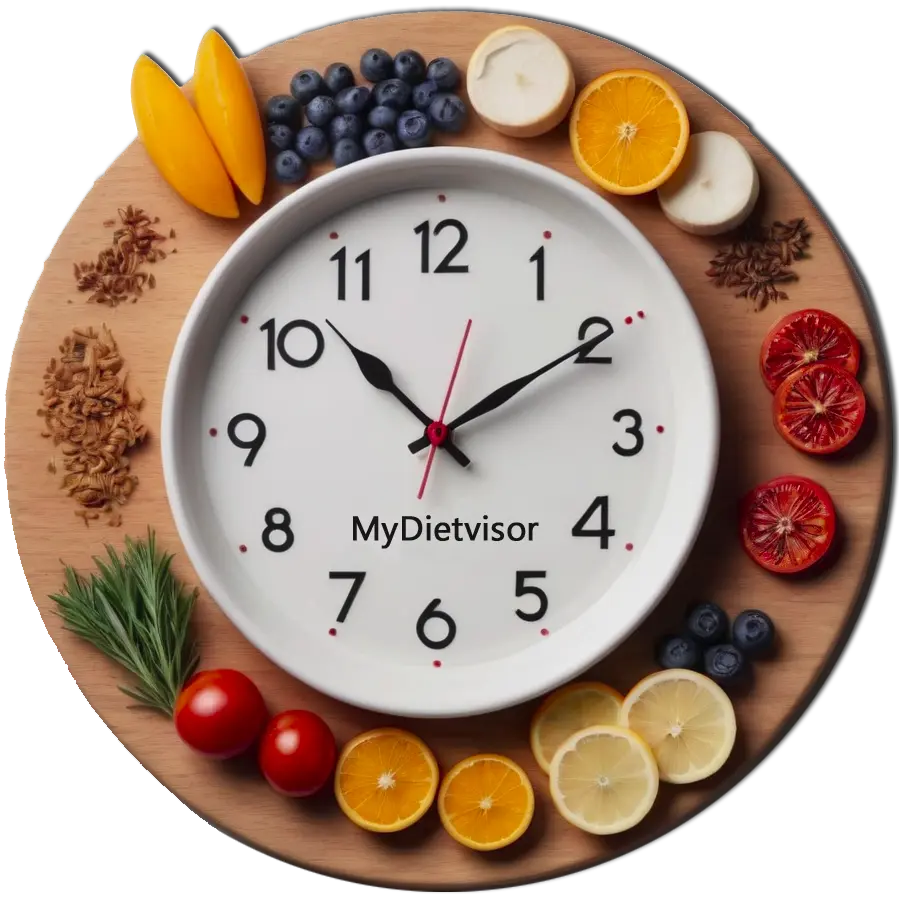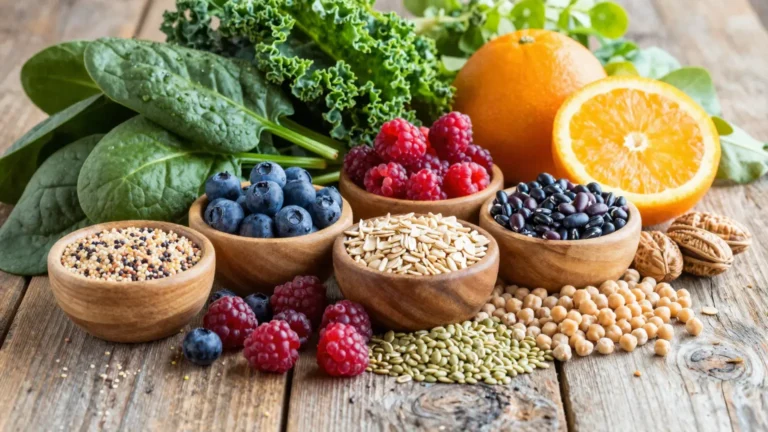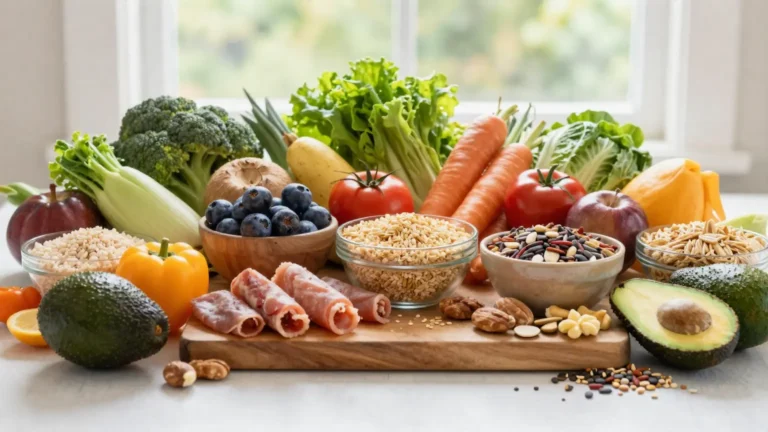Why Choose Veganism?
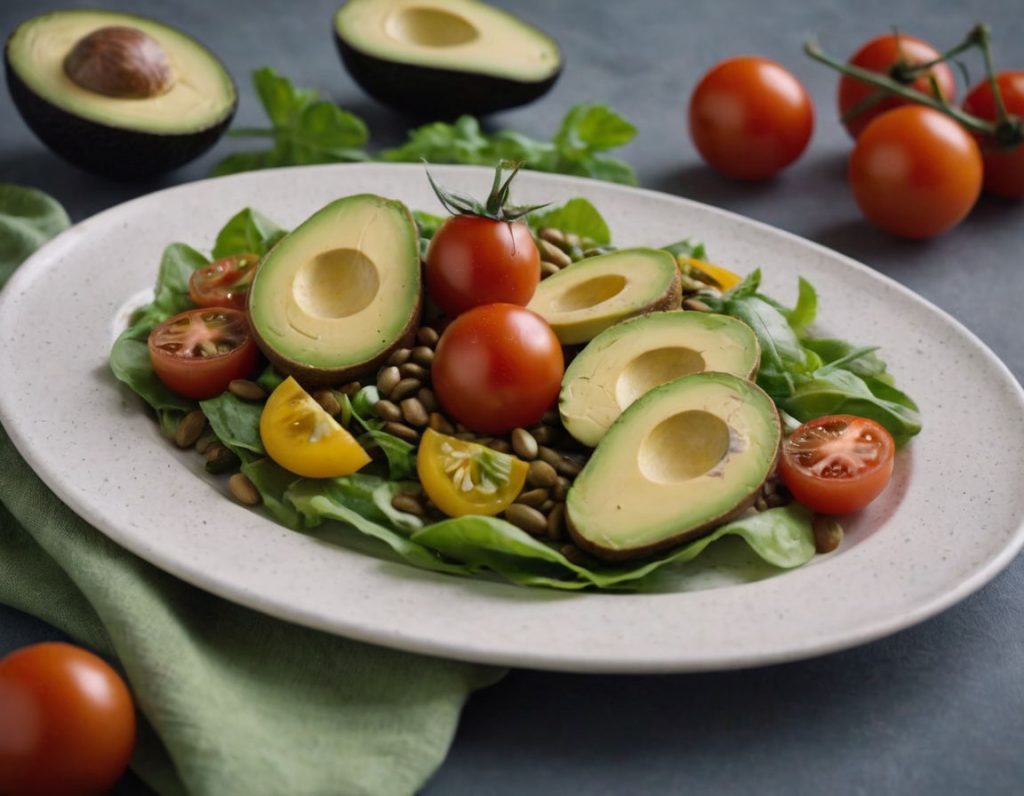
Vegan Diet is more than just a food trend; it’s a lifestyle that encompasses ethical values, environmental concerns, and personal health benefits. For many individuals, choosing veganism means aligning their daily practices with deep-seated beliefs about animal rights, sustainability, and overall well-being.
At its heart, veganism is rooted in compassion for animals. By opting out of products derived from animals – such as meat, dairy, eggs, leather, and silk – a person adheres to a philosophy that values all sentient beings equally. This ethical stance challenges speciesist norms prevalent in many societies today, aiming to create a world where cruelty towards animals is minimized.
Environmental Stewardship
Beyond ethics, veganism also addresses pressing environmental issues. The production of animal-based foods requires vast amounts of land, water, and resources compared to plant-based alternatives. Choosing a vegan diet can significantly reduce one’s carbon footprint, help conserve water, and mitigate deforestation linked to livestock grazing. This lifestyle choice is increasingly seen as an essential part of the solution for tackling climate change.
Health Benefits
In recent years, scientific research has highlighted numerous health benefits associated with plant-based diets. A well-planned vegan diet can provide all necessary nutrients while being rich in fiber, vitamins, and antioxidants. Many people adopt this dietary pattern to improve their heart health, manage weight, or lower risks of chronic diseases like diabetes and certain cancers.
Exploring the Broader Impact
Choosing a vegan lifestyle is not just about what you eat but also reflects broader values regarding justice, equality, and sustainability. As more individuals make this choice, there’s a ripple effect on industries such as agriculture and food manufacturing. The demand for plant-based products grows, driving innovation in vegan alternatives that are increasingly sophisticated and delicious.
By embracing the principles of veganism, one becomes part of a global movement advocating not only for animal rights but also for a sustainable future where all life can thrive together.
Principles of Veganism
At its core, vegan ethics prioritize compassion for all sentient beings. This means extending moral consideration beyond human interests to include animals’ rights to life and freedom from suffering. For vegans, the use of animals for food, clothing, or entertainment is seen as inherently exploitative and unethical.
Key Principles:
Non-violence (Ahimsa): A cornerstone in many spiritual traditions, emphasizing the avoidance of harm to all living beings.
Speciesism: Critiques this form of discrimination that prioritizes human interests over those of other animals. Vegans argue for equal consideration of animal needs and rights.
Vegan ethics challenge traditional views by questioning why humans have historically dominated nature without considering the welfare of non-human species. This shift towards a more inclusive moral framework encourages individuals to reflect on their choices and consider how they impact others, not just in human terms but in a broader ecological context.
Environmental Stewardship: A Call for Sustainable Living
Veganism promotes environmental sustainability by advocating for practices that reduce negative impacts on the planet. Meat production is notoriously resource-intensive; raising livestock consumes vast amounts of water, land, and feed while producing significant greenhouse gases like methane and carbon dioxide.
By adopting a plant-based diet, individuals can significantly decrease their ecological footprint. For example, growing crops directly to feed humans is much more efficient than feeding animals who are then slaughtered for meat consumption. This shift not only saves resources but also helps mitigate climate change by reducing emissions from agriculture.
Comparative Impact:
| Dietary Choice | Water Usage (Liters per Day) | Land Use (m² per Year) |
| Vegan | 1350 | 200 |
| Meat Eater | 4900 | 870 |
Health and Wellness: A Holistic Approach
Beyond ethics, veganism offers substantial health benefits. Plant-based diets are associated with lower risks of heart disease, type 2 diabetes, hypertension, and certain cancers. This is largely due to the high levels of antioxidants, phytochemicals, vitamins, and minerals found in a variety of fruits, vegetables, whole grains, nuts, seeds, and legumes.
Moreover, vegan diets tend to be lower in saturated fats and cholesterol while being higher in dietary fiber. These nutritional advantages contribute to better cardiovascular health and overall well-being. However, it’s crucial for individuals following a vegan diet to ensure they receive all necessary nutrients through a balanced intake of fortified foods or supplements, particularly vitamin B12.
Global Impact: Shaping Industries and Policies
The rise of veganism has sparked significant changes in industries such as food manufacturing and fashion. Companies are increasingly developing plant-based alternatives that mimic the taste and texture of meat and dairy products. This shift towards innovation not only caters to a growing consumer base but also promotes more sustainable production methods.
Industry Trends:
Food Industry: Growth in sales of vegan meats, cheeses, and other substitutes.
Fashion Industry: Expansion of cruelty-free leather alternatives made from recycled materials or innovative plant-based fabrics.
These developments highlight how personal choices can drive systemic changes. As consumers demand ethical and environmentally friendly options, businesses respond by adapting their practices to meet these needs. This transformation underscores the power of collective action in shaping a more compassionate and sustainable world.
Engaging with Veganism
Considering veganism is about making informed choices that align with values of compassion, sustainability, and health. Whether you’re motivated by ethical concerns or environmental awareness, each step towards a plant-based lifestyle contributes to positive change on both individual and global scales. How do these principles resonate with your own beliefs and practices?
History of Veganism
The roots of vegan philosophy can be traced back to ancient civilizations where certain religious and cultural practices were intrinsically tied to non-violence towards all living beings. In India, for instance, the concept of ahimsa (non-harming) has been a fundamental principle in Hinduism, Jainism, and Buddhism since at least 500 BCE. This ethical stance against causing harm to animals laid the groundwork for what would later be understood as vegan principles.
Early advocates who practiced forms of veganism but predated its formal definition include figures like Lewis Gompertz, an English abolitionist in the early 19th century. Gompertz wrote extensively on animal rights and promoted vegetarian diets, although the term “vegan” did not exist during his time. His work set a precedent for future movements that would advocate more comprehensively against all forms of animal exploitation.
The Birth of Veganism: A Distinct Movement
The modern concept of veganism emerged in 1944 when Donald Watson and several colleagues founded the Vegan Society in England. They introduced the term “vegan” to distinguish a lifestyle that excludes not only meat but also dairy, eggs, honey, and all other animal-derived products. This marked a significant shift from earlier vegetarian movements which often permitted the use of some animal by-products like milk or eggs.
Early Promoters and Global Expansion
The initial years saw veganism primarily concentrated within small communities in the UK, with early adopters often linked to social justice causes. George Bernard Shaw, known for his literary works and activism, was among those who promoted vegetarian and later vegan diets due to ethical concerns about animal welfare. His influence helped spread awareness of these dietary choices beyond strictly religious or cultural contexts.
As interest grew, particularly in the latter half of the 20th century, regional vegan societies began forming around the world. In 1948, the first US chapter was established, marking a significant step towards global recognition and expansion of vegan practices. This international spread continued through various grassroots efforts and educational initiatives that highlighted the ethical, environmental, and health benefits of a plant-based diet.
Key Moments in Vegan History
| Year | Event |
| 1944 | Coined term “vegan” by Donald Watson |
| 1948 | Formation of first US vegan society |
| 1960s-70s | Rise of animal rights activism and literature |
| 1990s | Growing interest in environmental impacts of diet |
| 2010s | Significant increase in mainstream adoption |
These milestones demonstrate the gradual but steady evolution of veganism from a niche ethical stance to a widely recognized movement advocating for compassionate, sustainable living practices.
Early Challenges and Support
The early days of veganism were marked by significant challenges. Critics often questioned the nutritional adequacy of plant-based diets, and societal norms frequently dismissed ethical concerns as radical or impractical. Despite these obstacles, pioneers like Donald Watson and The Vegan Society worked tirelessly to provide scientific evidence for the health benefits of veganism and promote awareness through publications and community events.
The 1960s and 70s saw a resurgence in interest driven by emerging animal rights activism and literature that challenged traditional views on human-animal relations. This period also witnessed increased public discourse around environmental issues, which further fueled the growth of veganism as an integral part of sustainability efforts.
Shaping Contemporary Vegan Practices
Today, veganism continues to evolve alongside advancements in technology and social awareness. The availability of plant-based alternatives for meat, dairy, and other animal products has grown exponentially, making it easier than ever before to adopt a fully vegan lifestyle without compromising on taste or convenience.
Moreover, the global rise of veganism reflects broader shifts towards more ethical consumption patterns and sustainability-focused policies across industries. As awareness increases and new innovations continue to emerge, the future looks promising for those advocating for compassionate living practices that respect all forms of life.
Recommended Foods
Choosing a plant-based diet involves selecting an array of nutritious foods that can meet your nutritional needs while also aligning with ethical and environmental values. A well-planned vegan diet is not only possible but can be highly beneficial for health.
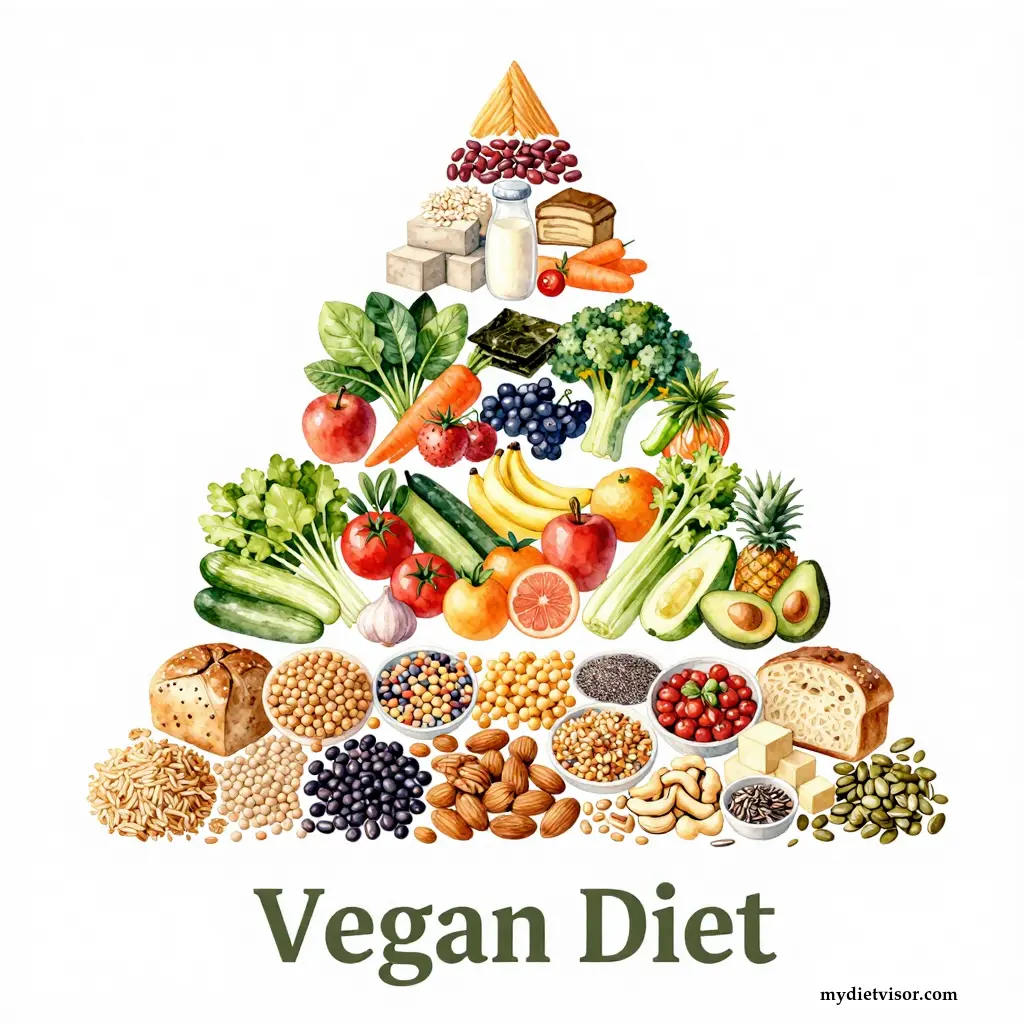
Key Food Groups:
Grains: Whole grains like quinoa, brown rice, barley, and oats are rich in complex carbohydrates, fiber, vitamins, and minerals.
Legumes: Beans, lentils, chickpeas, and peas offer a great source of protein, iron, zinc, and B-vitamins. Combining legumes with whole grains can create complete proteins.
Nuts and Seeds: Almonds, walnuts, chia seeds, flaxseeds, and sunflower seeds provide essential fatty acids, minerals like magnesium and phosphorus, and vitamin E.
Dairy Alternatives: Vegans often rely on plant-based milk alternatives such as soy milk, almond milk, oat milk, and coconut milk. These products are fortified with vitamins B12 and D to ensure adequate intake of these important nutrients.
Soy milk can contain up to 7 grams of protein per cup, which is comparable to cow’s milk.
Fruits and Vegetables: Incorporating a variety of fruits and vegetables ensures you get a broad spectrum of vitamins, minerals, antioxidants, and fiber. Some nutrient-dense options include spinach, kale, broccoli, sweet potatoes, blueberries, and oranges.
Popular Vegan Foods
Tofu and Tempeh: Both are excellent sources of protein and can be used in various dishes from stir-fries to smoothies.
Whole Grains: Try incorporating ancient grains like quinoa or amaranth into your meals for a boost in fiber and nutrients.
Fermented Foods: Options like kimchi, sauerkraut, and miso provide probiotics that support gut health.
Practical Tips
Balancing the diet to ensure you’re getting all essential vitamins and minerals is crucial. For instance, while many plant-based foods are rich in iron, it’s important to consume vitamin C alongside them to enhance absorption. Similarly, B12 supplementation or fortified foods like cereals and plant milks should be included as this nutrient is primarily found in animal products.
By focusing on these key food groups and incorporating a variety of nutrients-rich vegan options into your meals, you can maintain optimal health while adhering to ethical principles.
Engaging with Veganism
Exploring the diverse range of foods available when following a plant-based diet allows individuals to discover new tastes and culinary possibilities. How does experimenting with different vegan recipes inspire your journey towards compassionate living?
One-Day Meal Plan
A day on a vegan diet can be both satisfying and versatile. Here’s an example of how someone might structure their meals to ensure they are not only delicious but also nutritionally balanced.
Breakfast:
Smoothie Bowl: Blend together spinach, frozen berries, banana, and almond milk with a scoop of plant-based protein powder for added nutrients.
Vegan Pancakes: Made from oat flour or chickpea flour mixed with baking soda, vanilla extract, and water. Serve with maple syrup and fresh fruits.
Morning Snack:
Almond Butter on Toast: Whole grain bread topped with almond butter and sliced avocado provides healthy fats and proteins.
Energy Balls: A quick snack made from oats, dates, peanut butter, and chia seeds can be stored in the fridge for easy grabs throughout the day.
Lunch:
Quinoa Salad: Cooked quinoa mixed with diced tomatoes, cucumbers, bell peppers, chickpeas, and a lemon-tahini dressing. Topped with fresh parsley or cilantro.
Vegan Wrap: Whole wheat tortilla filled with hummus, shredded carrots, lettuce, and sprouts. Drizzle with olive oil and balsamic vinegar.
Afternoon Snack:
Roasted Chickpeas: Seasoned with a blend of spices like paprika, cumin, and garlic powder.
Fresh Fruit Cup: A mix of seasonal fruits such as strawberries, grapes, and blueberries served in a small bowl or cup.
Dinner:
Stir-Fry: Sauté vegetables like broccoli, bell peppers, and mushrooms with tofu cubes in a wok. Serve over brown rice or noodles.
Lentil Soup: A hearty soup made from lentils, carrots, onions, celery, tomatoes, and herbs. Pair it with a slice of whole grain bread.
Evening Snack:
Chia Seed Pudding: Chia seeds soaked in almond milk overnight and topped with fresh fruits or a drizzle of agave syrup.
Dark Chocolate Almonds: A small handful can satisfy your sweet tooth while providing antioxidants and healthy fats.
Tips for a Balanced Diet
Ensuring a well-rounded vegan diet involves careful planning to meet all nutritional needs. Here are some tips:
Vitamin B12 Supplementation: Since B12 is primarily found in animal products, fortified foods or supplements are necessary.
Calcium Intake: Include calcium-rich foods like leafy greens (kale, bok choy), fortified plant milks, and tofu made with calcium sulfate.
Omega-3 Fatty Acids: Consume flaxseeds, walnuts, chia seeds, or algae-based supplements to meet your omega-3 needs.
By incorporating a variety of foods from different food groups, you can enjoy delicious meals while staying healthy and true to vegan principles. How does this meal plan inspire you in your journey towards adopting or maintaining a plant-based lifestyle?
Nutritional Benefits
Choosing a plant-based diet can significantly improve overall health by providing essential nutrients while reducing the risk of several chronic diseases. A well-planned vegan diet is rich in fiber, vitamins, minerals, antioxidants, and phytochemicals, all of which play crucial roles in maintaining good health.
Key Nutrients:
Fiber: Found abundantly in whole grains, fruits, vegetables, nuts, and seeds; helps regulate digestion and reduces the risk of heart disease.
Vitamins C and E: These antioxidants are found in high concentrations in plant foods such as citrus fruits, bell peppers, leafy greens, and nuts. They protect cells from damage caused by free radicals.
Omega-3 Fatty Acids: While traditionally associated with fish oil, vegan sources include flaxseeds, chia seeds, walnuts, and algae-based supplements.
Comparative Health Outcomes
Numerous studies have shown that vegans tend to have lower body mass indexes (BMIs) compared to non-vegans, which can contribute to reduced risks of obesity-related diseases. Additionally, a plant-based diet is associated with improved heart health due to its high fiber and low saturated fat content.
Health Benefits Overview:
Heart Disease: Studies indicate that vegans are at lower risk for developing cardiovascular disease because their diets tend to be lower in cholesterol and saturated fats.
Type 2 Diabetes: Vegan diets can help manage blood sugar levels more effectively, reducing the likelihood of developing type 2 diabetes.
Cancer Prevention: The high intake of fruits, vegetables, whole grains, and legumes has been linked with a decreased risk of certain cancers.
Practical Nutritional Considerations
While transitioning to a vegan diet provides numerous health benefits, it’s essential to ensure adequate intake of all necessary nutrients. Certain vitamins and minerals can be harder to obtain from plant-based sources alone, such as vitamin B12, iron, calcium, zinc, and omega-3 fatty acids.
Supplementation Tips:
Vitamin B12: Found primarily in fortified foods or supplements; crucial for maintaining healthy nerve cells and red blood cells.
Iron: Plant-based sources like lentils, spinach, and tofu can be good options. Pairing these with vitamin C-rich foods enhances iron absorption.
Personalizing the Vegan Diet
Every individual’s nutritional needs are unique based on factors such as age, gender, activity level, and health status. Consulting a nutritionist or dietitian who specializes in vegan diets can help tailor meal plans to meet specific requirements while ensuring balanced nutrition.
Customization Suggestions:
Diverse Meal Planning: Incorporate a wide range of foods within each food group to cover all essential nutrients.
Regular Check-ups: Monitor blood levels for indicators like iron, vitamin D, and B12 regularly to ensure adequate intake.
Engaging with Veganism
Exploring the health benefits of veganism can be motivating for those considering making lifestyle changes. By understanding how a plant-based diet supports overall well-being, individuals may find additional reasons to embrace this sustainable and ethical way of living.
How does learning about these health benefits impact your perspective on adopting or maintaining a vegan diet?
Potential Drawbacks
While veganism offers numerous benefits, it also presents several challenges that individuals may encounter when transitioning to or maintaining a plant-based lifestyle. Understanding these potential drawbacks can help prepare for them and mitigate their impact.
Nutritional Concerns
One of the primary concerns with adopting a vegan diet is ensuring adequate intake of essential nutrients. Vegan diets are typically low in vitamin B12, which is crucial for nerve function and red blood cell production. Since this nutrient is primarily found in animal products, vegans must rely on fortified foods or supplements to meet their daily requirements.
Iron deficiency is another common issue among vegans due to the body’s reduced ability to absorb non-heme iron from plant sources compared to heme iron from meat. Combining iron-rich vegetables with vitamin C–rich foods can enhance absorption but requires careful meal planning.
Calcium and omega-3 fatty acids are also nutrients that may be less readily available in a vegan diet without conscious effort or supplementation. Omega-3s play a vital role in brain health, while calcium is essential for strong bones and teeth. Vegans must seek out plant-based sources such as flaxseeds, walnuts, chia seeds, fortified plant milks, tofu made with calcium sulfate, and algae supplements.
Social Challenges
Adopting veganism can sometimes lead to social isolation or tension within families and friend groups due to differing dietary practices. Social gatherings often revolve around food, and vegan alternatives might not always be readily available or well-received by others. This can make it challenging for vegans to participate in meals without feeling excluded or pressured to compromise their values.
According to a survey by the Vegan Society UK, over 40% of vegans reported experiencing social pressure related to their dietary choices at some point during their journey.
Economic Considerations
While vegan products are becoming more widely available, they can still be pricier than conventional alternatives. Plant-based meat substitutes and dairy analogs often cost more per serving compared to animal-derived foods. Additionally, the higher consumption of fruits, vegetables, nuts, and seeds in a balanced vegan diet might also lead to increased grocery bills.
Dietary Restrictions
Strict adherence to a vegan diet may limit the variety of foods that can be consumed, potentially leading to boredom or dissatisfaction over time if not carefully planned. Some individuals find it challenging to maintain interest in diverse plant-based meals without incorporating occasional non-vegan treats or exceptions.
Moreover, certain cultural and traditional practices might clash with vegan principles, making it difficult for some people to adhere strictly to the diet while participating fully in community events or family gatherings.
Nutritional Balance
Achieving a balanced vegan diet can be more complex than it appears. While plant-based eating offers numerous health benefits, ensuring all essential nutrients are met requires careful planning and sometimes supplementation. Vegans must pay close attention to their intake of protein, iron, calcium, vitamin D, zinc, iodine, and omega-3 fatty acids.
Practical Tips:
Vitamin B12: Consider a daily supplement or fortified foods like breakfast cereals.
Iron Absorption: Combine leafy greens with vitamin C-rich fruits for better absorption.
Calcium Sources: Include calcium-fortified plant milks, tofu made with calcium sulfate, and dark leafy greens.
Environmental Impact
While veganism aims to reduce environmental impact, the production of some processed vegan alternatives can be resource-intensive. For example, manufacturing plant-based meat substitutes often requires significant energy inputs and may contribute to greenhouse gas emissions similar to those from conventional agriculture.
Comparative Carbon Footprint:
| Dietary Choice | Greenhouse Gas Emissions (kg CO2e per kg) |
| Beef | 60 |
| Chickpeas | 1.7 |
Mental Health and Stress
Transitioning to a vegan lifestyle can be stressful, especially if it involves significant changes in eating habits and social interactions. Some individuals may experience guilt or anxiety about their previous food choices or feel overwhelmed by the responsibility of making ethical decisions.
Engaging with Veganism: How do you navigate these challenges while staying true to your values? Have you found ways to balance nutritional needs, maintain social connections, and manage costs effectively?
Understanding and addressing potential drawbacks can help individuals make informed choices about their dietary practices and lifestyle adjustments.
Common Myths About Vegan Diet
One of the most pervasive myths about a vegan diet is that it lacks essential nutrients. Many people believe that without animal products, it’s impossible to obtain enough protein, iron, calcium, vitamin B12, and other vital nutrients. However, this couldn’t be further from the truth. A well-planned plant-based diet can provide all necessary nutrients through a variety of food sources.
Myth: “Vegans Don’t Get Enough Protein”
This is one of the most common misconceptions about vegan diets. In reality, many plant foods are excellent protein sources. Legumes like lentils and chickpeas, grains such as quinoa and brown rice, nuts, seeds, and soy products (like tofu and tempeh) all offer high-quality proteins that can meet daily requirements.
Myth: “Vegans Have Weak Bones”
Contrary to popular belief, consuming a vegan diet does not put you at risk for osteoporosis or weak bones. In fact, a well-planned plant-based diet can be highly beneficial for bone health due to its high content of fruits and vegetables, which provide important nutrients like vitamin K and potassium. These nutrients play key roles in maintaining strong bones.
Myth: “Vegan Diets Are Too Expensive”
While some specialty vegan products or supplements might be pricier than their conventional counterparts, the overall cost of a balanced plant-based diet can often be lower due to less expensive staples like beans, rice, and seasonal produce. Additionally, many people find that cooking at home more frequently when on a plant-based diet helps them save money in the long run.
Myth: “Vegans Can’t Get Enough Calcium”
Calcium is crucial for bone health, but it’s a myth that you can only get it from dairy products. Numerous vegan foods are rich in calcium, including fortified plant milks and juices, leafy greens like kale and collard greens, tofu made with calcium sulfate, almonds, and sesame seeds.
Myth: “Vegans Are More Likely to Be Anemic”
Iron deficiency anemia is a concern for many dietary patterns, not just vegan diets. However, by combining iron-rich plant foods with vitamin C–rich foods (such as bell peppers, oranges, strawberries), vegans can enhance the absorption of non-heme iron from plants.
Myth: “Vegans Don’t Get Enough Vitamin B12”
While it’s true that most natural sources of vitamin B12 come from animal products, this nutrient is now widely available in fortified foods and supplements designed for vegans. It’s essential to include reliable sources such as nutritional yeast, fortified cereals, or take daily B12 supplements.
Myth: “Vegan Diets Are Harder on the Environment”
Some argue that plant-based diets are less sustainable because growing plants uses more land than raising animals. However, studies have shown that producing plant-based foods requires significantly fewer resources and generates lower greenhouse gas emissions compared to livestock farming.
By addressing these common myths, individuals can better understand the realities of adopting a vegan lifestyle, dispelling fears and misconceptions about nutritional adequacy and environmental impact.
How do these debunked myths affect your perspective on veganism? Are there any specific concerns or questions that still linger in your mind as you consider making dietary changes toward plant-based eating?
Transitioning Tips
Transitioning to a vegan lifestyle can be both exciting and daunting. Here are some practical tips to help you navigate the process smoothly while ensuring that your diet remains nutritious and enjoyable.
Gradual Shift
Start Small: Begin by incorporating one or two plant-based meals into your weekly routine each week. This gradual approach allows your body time to adjust and reduces the likelihood of feeling overwhelmed.
Try Meatless Mondays: Dedicate one day a week to meat-free meals to ease into the transition.
Education and Planning
Learn About Vegan Nutrition: Understanding which nutrients are important in a vegan diet is crucial for avoiding deficiencies. Focus on getting enough protein, iron, calcium, vitamin B12, and omega-3 fatty acids.
Vitamin B12: Supplement your diet with B12 or choose fortified plant milks and cereals.
Meal Planning: Plan your meals ahead to ensure you have a variety of nutritious options. This helps in avoiding impulsive choices that might deviate from your goals.
Experimentation
Explore New Foods: Embrace the opportunity to try new foods and recipes. Visit vegan blogs, YouTube channels, and social media groups for inspiration.
Sample Vegan Recipes: Start with simple dishes like chickpea curry, lentil soup, or vegetable stir-fry to get a feel for plant-based cooking.
Support System
Join Community Groups: Engage with local vegan communities or online forums where you can share tips and experiences. Connecting with others who are on the same journey can provide encouragement and motivation.
Attend Vegan Meetups: Local meetups are great places to learn from more experienced vegans and discover new plant-based products.
Overcoming Challenges
Handle Social Situations Gracefully: Be prepared to explain your dietary choices politely but firmly. Bring vegan snacks or dishes to gatherings where options might be limited.
Stay Positive: Stay committed despite setbacks, and remember that slip-ups are part of the learning process.
By following these tips, you can make a smooth transition to veganism while enjoying delicious meals and contributing positively to environmental sustainability and ethical considerations. How have these strategies helped you in your journey towards adopting plant-based living?
Comparison with Other Diets and Vegan Alternatives
When considering different dietary choices, it’s important to understand how a vegan diet compares to other common options like vegetarian, pescatarian, or omnivorous diets. Each of these has its unique set of benefits and challenges, making them appealing to different individuals based on personal values, health goals, and environmental concerns.
Vegetarian vs Vegan
The primary difference between vegetarians and vegans lies in the inclusion of certain animal products:
Vegetarians avoid meat but may still consume dairy, eggs, and honey. They are further classified into lacto-ovo vegetarians (who include both milk and eggs), ovo-vegetarians (eggs only), and lacto-vegetarians (milk only).
Vegans, on the other hand, abstain from all animal products including dairy, eggs, honey, and even clothing or beauty items derived from animals.
Comparative Table:
| Criteria | Vegetarian | Vegan |
| Meat | Avoids meat but may eat fish (pescatarian) | Avoids all meats |
| Dairy | May consume dairy products | Avoids dairy and eggs |
| Eggs | May include eggs in diet | Excludes eggs |
| Honey | Often included or excluded based on personal choice | Generally avoided as it involves exploitation of bees |
Pescatarian Diet
Pescatarians avoid meat but allow fish and seafood consumption. This dietary pattern can be appealing to individuals who want to reduce their reliance on land animals for food while still enjoying aquatic resources.
Key Points:
Health Benefits: Fish provides omega-3 fatty acids, which are beneficial for heart health.
Environmental Impact: While fishing practices vary widely in sustainability, they generally have a lower carbon footprint compared to beef production.
Ethical Concerns: Some argue that fish feel pain and suffer, challenging the ethical stance of pescatarianism.
Omnivorous Diet
The omnivorous diet includes both plant-based foods and animal products. This traditional dietary pattern is common in many cultures around the world.
Key Points:
Nutritional Variety: Offers a broad range of nutrients from different sources.
Environmental Impact: High consumption of meat, especially beef, contributes significantly to greenhouse gas emissions and deforestation.
Ethical Considerations: The use of animals for food raises ethical concerns about animal welfare and sustainability.
Vegan Alternatives
As the demand for plant-based alternatives grows, the market has seen an explosion in innovative products designed to mimic traditional animal-derived foods. These alternatives aim to provide similar taste and texture while addressing ethical and health concerns.
Popular Alternatives:
Plant-Based Meats: Products like Beyond Meat and Impossible Foods use ingredients such as soy, wheat, pea protein, and beet juice to create meat-like textures.
Dairy-Free Milks: Options include almond milk, oat milk, coconut milk, and rice milk. These products are often fortified with vitamins and minerals similar to cow’s milk.
Egg Replacers: Ingredients like aquafaba (chickpea water), applesauce, or commercial egg replacers mimic the binding properties of eggs in baking.
Comparative Health Benefits
While all diets have their merits, a well-planned vegan diet can offer distinct health advantages:
Comparative Table:
| Dietary Choice | Cardiovascular Disease Risk | Type 2 Diabetes Risk | Cancer Prevention |
| Vegetarian | Lower than omnivores | Lower | Moderate |
| Vegan | Significantly lower | Lowest | Highest |
| Pescatarian | Lower due to omega-3s | Moderate | Moderate |
Engaging with Veganism
Exploring the various dietary options and their respective impacts can help individuals make informed choices that align with both personal health goals and ethical values. How do these comparisons influence your perspective on different dietary practices?
Understanding the nuances between veganism, vegetarianism, pescatarianism, and omnivorous diets allows you to consider which approach best suits your lifestyle and beliefs. Whether motivated by ethics, health concerns, or environmental sustainability, each diet offers unique opportunities for personal growth and positive change.
How do these insights guide your thoughts on adopting a plant-based lifestyle?
Summary: Embracing the Benefits of a Vegan Lifestyle
Veganism is a lifestyle that goes beyond dietary choices, encompassing ethics, environmental sustainability, and personal health benefits. From its origins in ancient practices of non-violence to its modern form as a global movement, veganism challenges traditional norms and advocates for a compassionate world where all life can thrive together. By embracing plant-based diets and rejecting animal products, individuals not only improve their own well-being but also contribute to the larger goals of reducing environmental impact and promoting ethical treatment of animals.
The journey towards veganism involves understanding its rich history, the diverse motivations behind it, and the practical aspects of maintaining a balanced diet. Whether driven by ethical concerns, health benefits, or environmental sustainability, each step taken towards a plant-based lifestyle contributes to positive change on both individual and global scales. As more people adopt this way of living, there is growing recognition of its potential to create a healthier, more sustainable future for all beings.
By exploring the broader impact of veganism – from shaping industries to influencing social norms – individuals can see how personal choices have far-reaching effects. Engaging with the principles and practices of veganism encourages reflection on our relationship with nature and other species, fostering a deeper connection to the world around us. As we continue to navigate this evolving landscape, embracing the benefits of a vegan lifestyle offers a path towards a more compassionate and sustainable future for generations to come.
Frequently Asked Questions (FAQ)
What are some common misconceptions about vegan diets?
Some people think that it’s hard to get enough protein on a vegan diet, but with careful planning, vegans can easily meet their protein needs. Another misconception is that all vegans eat the same way, when in fact, there’s plenty of variety within vegan eating.
How does veganism impact the environment?
Vegan diets are considered exceptionally environmentally friendly because they reduce greenhouse gas emissions by about 70-80%. They also use less land and water compared to traditional meat-based diets.
Is it safe for children to follow a vegan diet?
According to nutrition experts, well-planned vegan diets can be appropriate for all stages of life, including pregnancy, lactation, infancy, childhood, adolescence, older adulthood, and for athletes. It’s important for parents to work closely with dietitians or doctors to ensure nutritional needs are met.
Can you get enough calcium on a vegan diet?
Yes, there are plenty of plant-based sources of calcium like leafy greens (kale, collard greens), broccoli, beans, fortified soy milk and almond milk, as well as tofu set with calcium salts. It’s important to include these in your diet regularly.
Are vegans more virtuous or principled than non-vegans?
While some people perceive vegetarians and vegans as being more virtuous due to their ethical stance on animal welfare, it’s subjective how this perception impacts the individuals involved. The decision to adopt a vegan lifestyle is deeply personal and rooted in ethics, health, or environmental concerns.
What are the social challenges of adopting a vegan diet?
Some people may face social pressures or difficulties dining out when following a vegan diet due to limited options at restaurants. Additionally, there can be cultural resistance or skepticism towards veganism from communities where meat consumption is traditional.
How does veganism relate to other ethical movements like feminism and environmentalism?
Veganism intersects with various ethical movements including ecofeminism. Many activists highlight the interconnectedness of animal rights, gender equality, and environmental sustainability as part of a broader movement for justice and compassion.
What are some tips for transitioning to a vegan diet?
Start by incorporating more plant-based meals into your current diet gradually. Experiment with different ingredients and recipes to find what you enjoy eating. Seek advice from nutritionists or online communities specializing in vegan diets for guidance on meal planning and supplement use if necessary.
Are there legal protections for vegans against discrimination?
In some countries, such as the United Kingdom, ethical veganism is recognized under anti-discrimination laws. This means that workplaces must accommodate individuals following a vegan lifestyle according to their beliefs without causing undue hardship.
What are some benefits of a vegan diet beyond health?
A vegan diet can contribute positively towards environmental sustainability and animal welfare. It also fosters awareness about food systems and encourages consumers to make informed choices regarding ethical consumption.
